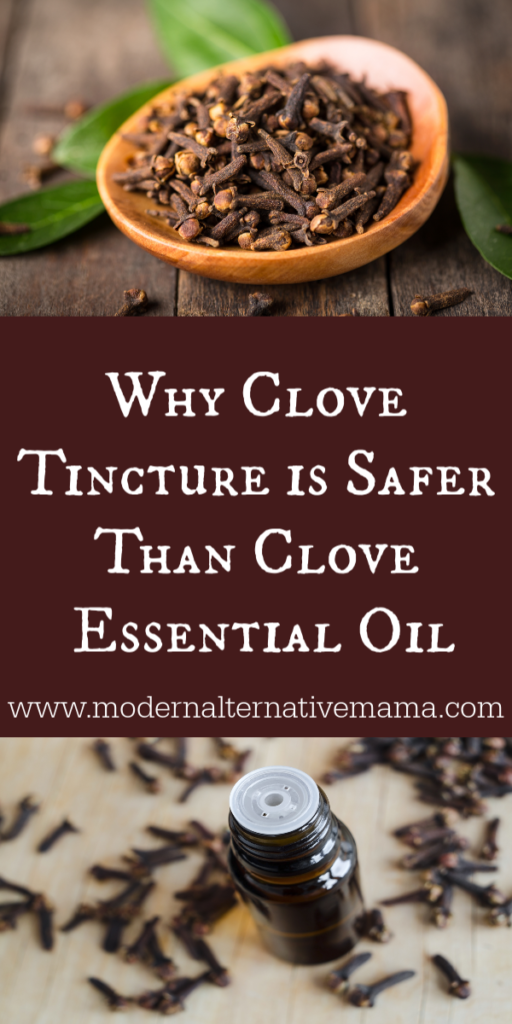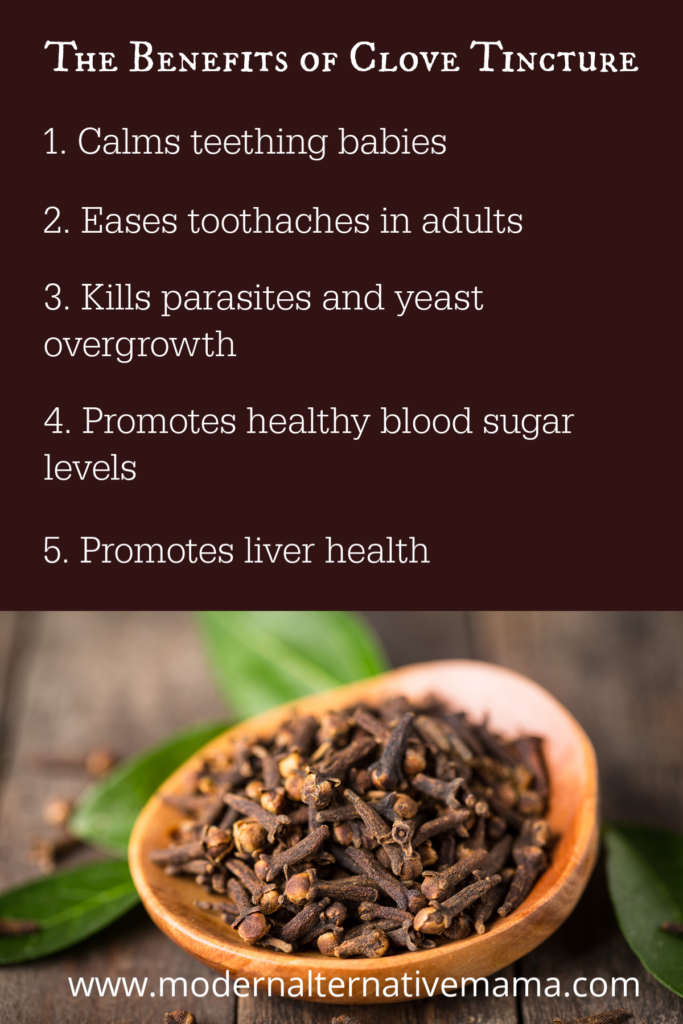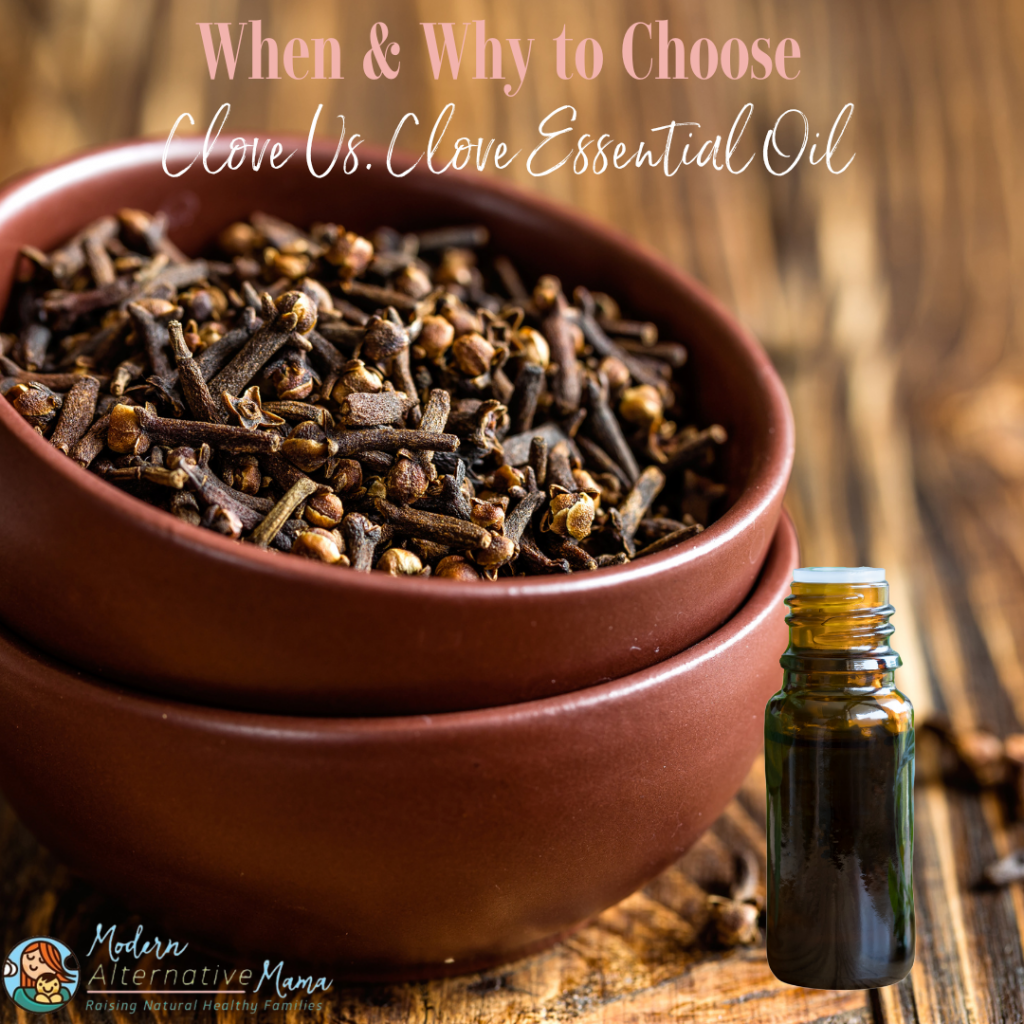A few days ago, someone said to me “I was told that cloves in any form are dangerous for kids under 2! But you recommend using clove tincture for babies. What’s the truth here?”
It’s true. I have used clove tinctures in babies for over 5 years. And, clove essential oil is not recommended for little ones.
Many people get confused on this. How can one be safe…and the other not be? What’s really going on here?

Why Clove Tincture is Safer Than Clove Essential Oil
The science, and the math, is actually pretty simple. 🙂
The concern with cloves is a chemical called eugenol. This chemical is extremely potent, and is responsible for the plant’s anti-fungal, anti-bacterial, anti-inflammatory, and even insect-killing properties. In high concentrations, yes, it can be dangerous.
The undiluted essential oil contains approximately 89% eugenol, which is why it’s not recommended in babies. Even diluted to a level of 2% (which is the equivalent of just 6 drops in a 10-ml roller bottle) is 1.7% eugenol, and is too powerful for babies. That level is safe for adult use.
On the other hand, a tincture is quite different.
Whole cloves contain, on average, just 9 – 14% essential oil. This means just 8 – 12.5% eugenol. In my recipe for clove tincture (for babies), it calls for just 3 oz. (85 g) of whole cloves per gallon of liquid. Once that liquid is finished, the amount of eugenol in the actual tincture is under 0.2%.
So, you can see that the amount of eugenol in a tincture is 1/10th what it would be in diluted essential oil. That’s why the tincture is safe, and the essential oil isn’t.
Still worried? Well, eugenol isn’t just found in cloves. It’s also found, in small amounts, in fruits — like raspberries and bananas! The concentration of eugenol in a banana isn’t a whole lot different than in a clove tincture. If you’re not worried about giving your child a banana to eat, you shouldn’t be worried about clove tincture, either.

The Benefits of Clove Tincture
Clove tincture is excellent for teething babies! It provides just a little bit of pain-relieving, numbing qualities. It’s been my favorite teething remedy for years now.
It’s also great for older kids and adults, for toothaches, molars, wisdom teeth, or even just played-too-rough. (Some of my boys have used it after wrestling accidents on the trampoline.)
Clove tincture is also great for gut health — it can help to kill parasites and yeast overgrowth. It may also help with stomach issues.
Cloves also stimulate the liver, and can promote overall liver health. And if your liver is working well…then your body can detox naturally!
Basically…cloves are awesome. Get them in your diet.
My favorite ways to get cloves are:
- Teeth Tamer (for teething babies)
- Candida Cleanse (for gut health)







Do you have a recipe for making clove tincture?
We have the teeth tamer it says use 2-10 drops but how often can reapply for a teething baby?
Hi! Teeth Tamer can be given as needed for tooth pain.
What happens if they possibly get too much? I got distracted and I thought the dropper was full but it wasn’t when I turned my head. Not sure if it went in my baby’s mouth?